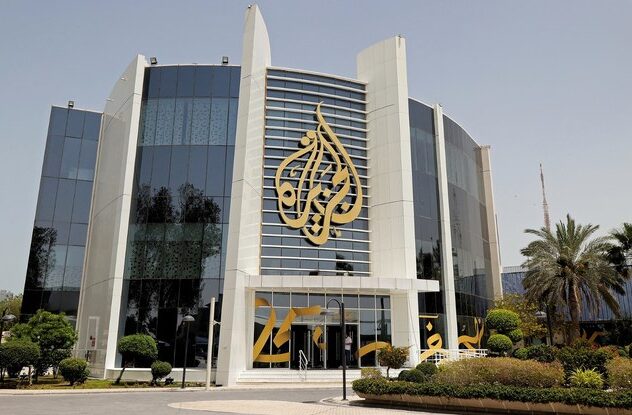A Journey through the Cultural and Religious Landscapes of Israel and Lebanon
Embark on a captivating journey through the vibrant and diverse landscapes of Israel and Lebanon, where history, culture, and religion intertwine to create a tapestry like no other. From border hostilities and political tensions to the rich cultural heritage that shapes these countries, this article takes you on an exploration where ancient traditions meet modern complexities. Join us as we delve into the intricate web of stories and experiences that make up these two fascinating nations. Get ready to be immersed in a world where past meets present, conflicts collide with unity, and cultural treasures await at every turn! So fasten your seatbelts for an unforgettable expedition through the intriguing terrain of Israel and Lebanon. Let’s dive right in!
Border Hostilities and the Gaza War
Border hostilities and the Gaza War have been a recurring theme in the complex relationship between Israel and Lebanon. The simmering tensions along their shared border have often flared up into violent clashes, leaving both sides on high alert. In recent years, Israel has repeatedly warned about the escalating hostilities, emphasizing the need for a political settlement before things spiral out of control.
The situation reached a boiling point during the Gaza War when Israel and Hamas engaged in intense military confrontations. This conflict not only strained relations within Israel but also had ripple effects on Lebanon’s borders as violence escalated between Israeli forces and Hezbollah militants.
Amidst this turmoil, Palestinians residing in Lebanon expressed disappointment that Hezbollah did not escalate tensions further, highlighting the intricate dynamics at play in this volatile region where alliances shift unpredictably. The ongoing border hostilities serve as a reminder of the delicate balance that exists between these two nations – one that continues to shape their cultural landscapes amidst an ever-evolving geopolitical landscape.
Israel warns about Lebanon border hostilities: “The hourglass for a political settlement is running out”
Amidst escalating tensions on the Israel-Lebanon border, Israel has issued a warning about the growing hostilities. The Israeli government has expressed concern that time is running out for a political resolution to the conflict in this volatile region.
With increasing violence and cross-border attacks, both sides are at risk of further escalation. The situation demands urgent attention and action to prevent further bloodshed.
Efforts must be made by all parties involved to find common ground and engage in meaningful dialogue. It is crucial that diplomatic solutions are explored before it’s too late, as any delay could have severe consequences for stability in the region.
In these uncertain times, it is essential for leaders on both sides to prioritize peace over aggression and work towards finding a peaceful resolution that ensures security and prosperity for all involved parties. Only through open communication and sincere negotiations can lasting peace be achieved between Israel and Lebanon.
Israel & Hamas At War
The conflict between Israel and Hamas has once again ignited, leading to a devastating war that is impacting the lives of countless individuals. The recent escalation has left both sides in a state of turmoil as rockets are fired and airstrikes carry out their destructive missions.
In this ongoing battle, innocent civilians are caught in the crossfire, facing unimaginable fear and uncertainty. The constant threat of violence haunts their daily lives, with no end in sight. Families living near the Gaza Strip live in constant fear for their safety, while those serving on the frontlines risk their lives to protect their homeland.
Amidst this chaos, international calls for de-escalation grow louder each day. The world watches anxiously as diplomatic efforts attempt to find a peaceful resolution. However, until an agreement is reached or a ceasefire declared, the toll on human life continues to rise and tensions remain at an all-time high.
The Situation on the Lebanon Border
The situation on the Lebanon border has been a cause for concern in recent times. Israeli Minister Gantz recently stated that it “demands change,” highlighting the seriousness of the matter. In addition, there have been reports of Israeli strikes killing Hezbollah fighters, further escalating tensions.
Amidst all this, Hamas has started recruiting in Lebanon, raising questions about what this means for Hezbollah and their relationship with Palestine. The violence between Israel and Hezbollah has also intensified during the Gaza assault.
These events have left Palestinians in Lebanon disappointed as they had hoped that Hezbollah would escalate the situation. With each passing day, it becomes clearer that the situation on the Lebanon border is volatile and requires immediate attention to prevent further escalation and casualties.
Israeli minister Gantz says situation on Lebanon border ‘demands change’
The situation on the Lebanon border has taken a concerning turn, as Israeli Minister Gantz recently declared that it “demands change.” The ongoing hostilities between Israel and Hezbollah have escalated tensions in the region. The minister’s statement emphasizes the urgency of addressing this volatile situation.
Israeli strikes along the Lebanon border have resulted in casualties, including a Hezbollah fighter. With violence escalating, there are growing concerns about how this will impact regional stability. Additionally, Hamas’ recruitment efforts within Lebanon add another layer of complexity to an already delicate situation.
The call for change from Minister Gantz highlights the need for immediate action to deescalate tensions and find a peaceful resolution. As these events unfold, it remains uncertain what steps will be taken to address this highly sensitive issue and restore calm along the Lebanon-Israel border.
Israeli strikes kill Hezbollah fighter as violence on Lebanon border grows
Amidst the growing tensions along the Lebanon border, Israeli airstrikes have claimed the life of a Hezbollah fighter. The situation has become increasingly volatile, with both sides engaging in acts of aggression. These recent events serve as a stark reminder of the ongoing conflict between Israel and its neighboring countries.
The death of the Hezbollah fighter highlights the escalating violence on the Lebanon border. It is clear that tensions are reaching dangerous levels, demanding immediate attention and action from both parties involved. The loss of life only adds fuel to an already raging fire, further complicating any potential resolution.
As this deadly exchange continues to unfold, it becomes evident that there is no quick solution in sight. Both Israel and Hezbollah must address their grievances through diplomatic means rather than resorting to violent measures. Only through open dialogue and compromise can they hope to achieve any semblance of peace or stability in this troubled region.
Hamas is now recruiting in Lebanon. What will that mean for Hezbollah?
Hamas is now recruiting in Lebanon, and this development raises questions about its implications for Hezbollah. The presence of Hamas in Lebanon could potentially challenge Hezbollah’s dominance as the leading militant group in the country. This recruitment drive by Hamas may not only attract new members but also increase its influence among Palestinian refugees living in Lebanon.
For years, Hezbollah has been seen as the primary defender of Palestinian rights and resistance against Israel. However, with Hamas gaining a foothold, there might be a shift in loyalties within the Palestinian community in Lebanon. It remains to be seen whether this competition between these two powerful groups will lead to conflicts or cooperation.
The presence of both Hamas and Hezbollah on Lebanese soil adds another layer of complexity to an already volatile region. With their differing ideologies and strategies, tensions could escalate further if they find themselves at odds. As observers analyze the situation closely, it becomes evident that any developments regarding Hamas’s recruitment efforts will have significant consequences for Hezbollah’s standing within Lebanon’s political and military landscape.
Violence escalates between Israel and Lebanon’s Hezbollah amid Gaza assault
Violence escalates between Israel and Lebanon’s Hezbollah amid Gaza assault. The situation on the border between Israel and Lebanon has been growing increasingly tense in recent weeks. Israeli strikes have killed a Hezbollah fighter, further fueling the violence. This escalation comes at a time when both countries are already dealing with the ongoing conflict in Gaza.
The recruitment of Hamas fighters in Lebanon adds another layer of complexity to the situation. As Hamas gains a presence in Lebanon, questions arise about how this will impact Hezbollah’s role as a dominant force in Lebanese politics. Will it lead to increased tensions or cooperation between these two powerful groups?
Palestinians living in refugee camps in Lebanon express disappointment that Hezbollah is not escalating their involvement in the conflict. They had hoped for stronger support from their fellow Arabs during this challenging time.
As violence continues to escalate on the Israel-Lebanon border, fears grow about potential wider regional destabilization. The repercussions of this current crisis could have far-reaching consequences for both countries and beyond.
Palestinians in Lebanon disappointed that Hezbollah won’t escalate
Palestinians living in Lebanon have expressed their disappointment over Hezbollah’s decision not to escalate tensions with Israel. As violence intensified along the border, many Palestinians had hoped that Hezbollah would join the fight and retaliate against Israeli forces. However, despite growing frustration among Palestinians, Hezbollah has maintained a cautious stance, citing strategic considerations and concerns about further destabilizing the region.
For Palestinians in Lebanon, this lack of action from Hezbollah is seen as a missed opportunity to challenge Israeli aggression and show solidarity with their cause. Many feel let down by what they perceive as a failure to protect Palestinian rights and interests. They had expected Hezbollah to take a more assertive stance given its reputation as a powerful resistance movement.
While some Palestinians understand the complexities of the situation and acknowledge the risks involved in escalating hostilities with Israel, others feel disillusioned by what they see as a lack of support from one of their main allies in the region. The disappointment reflects an underlying sense of frustration among Palestinians who have long been marginalized and face numerous challenges in Lebanon.
While there are differing opinions within Palestinian communities in Lebanon regarding Hezbollah’s approach, it is clear that many were hoping for stronger action against Israeli aggression. This disappointment highlights both the deep-rooted grievances faced by Palestinians and their desire for unified resistance against common oppressors.
Cultural and Religious Influences
Exploring the Israel and Lebanon are two countries with rich cultural and religious landscapes that have shaped their histories and identities. In Israel, the influence of Judaism is deeply ingrained in every aspect of society. From ancient traditions to modern practices, the Jewish faith plays a central role in shaping Israeli culture.
In Lebanon, on the other hand, a diverse mix of religions coexist harmoniously. Christianity, Islam, and Druze beliefs all contribute to the vibrant tapestry of Lebanese culture. The country’s historical sites reflect this diversity, with beautiful churches and mosques standing side by side.
Both Israel and Lebanon also share a common thread when it comes to food. Their culinary traditions are influenced by various cultures that have left their mark over centuries. From falafel and hummus in Israel to tabbouleh and shawarma in Lebanon, these delicious dishes showcase the fusion of flavors that define these nations.
The cultural heritage of Israel and Lebanon is intertwined with their religious beliefs. Each country has its own unique blend of customs, traditions, architecture, art forms,and culinary delights that make them truly captivating destinations for travelers seeking an immersive experience into history,society,and spirituality
Exploring Israel’s Cultural Landscape
Israel’s cultural landscape is a vibrant tapestry that reflects its rich history and diverse population. From ancient archaeological sites to bustling modern cities, there is something for everyone to explore and experience. In Jerusalem, visitors can immerse themselves in the city’s religious significance with visits to the Western Wall, Church of the Holy Sepulchre, and Al-Aqsa Mosque. Tel Aviv offers a contrasting atmosphere with its trendy art galleries, vibrant nightlife, and beautiful Mediterranean beaches. The northern region of Israel boasts picturesque landscapes dotted with charming villages like Safed and Akko, where visitors can delve into Jewish mysticism or wander through ancient Crusader ruins.
The culinary scene in Israel is another aspect of its cultural fabric that cannot be missed. From savory falafel and hummus to mouthwatering shawarma and fresh seafood from the Mediterranean coast, Israeli cuisine tantalizes taste buds with a fusion of Middle Eastern flavors. Food markets like Mahane Yehuda in Jerusalem or Carmel Market in Tel Aviv provide an opportunity to sample local delicacies while soaking up the lively atmosphere.
Israeli arts and entertainment also offer a window into the country’s culture. The Israeli film industry has gained international recognition for producing thought-provoking films such as “Footnote” and “Waltz with Bashir.” Music festivals like Jacob’s Ladder Folk Festival showcase both local talent and international artists against breathtaking natural backdrops.
Exploring Israel’s cultural landscape invites travelers on an immersive journey through time-honored traditions, artistic expressions, flavorful cuisine,and warm hospitality that make this country truly unique
Exploring Lebanon’s Cultural Landscape
Lebanon’s cultural landscape is a tapestry of influences that have shaped the nation’s identity over centuries. From its ancient Phoenician roots to the more recent Arab and French colonial legacies, Lebanon is a captivating blend of traditions, languages, and religions.
One cannot explore Lebanon without being captivated by its rich culinary scene. Lebanese cuisine is renowned worldwide for its flavorful dishes like hummus, falafel, and tabbouleh. The country’s bustling markets are a treasure trove of spices, fresh vegetables, and aromatic herbs that tantalize the taste buds.
Lebanon’s cultural heritage also extends to its vibrant arts scene. Beirut has earned a reputation as an artistic hub in the region with numerous galleries showcasing contemporary works alongside traditional crafts such as carpet weaving and pottery. The city comes alive during festivals like Beiteddine Art Festival and Byblos International Festival, where music concerts and theatrical performances take center stage.
With each step taken on Lebanese soil, visitors can feel the pulse of history echoing through its ancient ruins such as Baalbek or Tyre. These archaeological sites offer glimpses into civilizations long gone but not forgotten. Exploring Lebanon’s cultural landscape is an immersive experience that leaves one in awe of its rich past while embracing the vibrancy of its present-day diversity
Synthesis and Reflection
As we journeyed through the cultural and religious landscapes of Israel and Lebanon, one thing became abundantly clear . These two countries are deeply intertwined in a complex web of history, politics, and faith. The ongoing border hostilities between Israel and Lebanon have only served to highlight this intricate relationship.
From the recent warnings issued by Israel about potential escalations on the Lebanon border to. The growing violence between Israeli forces and Hezbollah fighters, tensions remain high. The situation demands change, as emphasized by Israeli Minister Gantz. However, amidst all this turmoil, it is important to note that not everyone desires further escalation. Palestinians living in Lebanon expressed disappointment over Hezbollah’s decision not to escalate the conflict.
Beyond these political challenges lie rich cultural narratives waiting to be explored. In Israel, we discovered a diverse tapestry of traditions influenced by Judaism. Christianity, Islam, and numerous other cultures that have shaped its identity over centuries. From ancient archaeological sites like Jerusalem’s Old City to modern cosmopolitan cities like Tel Aviv with its vibrant arts scene . There is something for every visitor seeking an authentic experience.
On the other hand, Lebanon presents a captivating fusion of Eastern Mediterranean cultures. Where Phoenician roots blend with Arab influences while embracing diversity within its borders. Exploring Beirut’s bustling streets lined with historic buildings or venturing into picturesque. Villages nestled in mountainous regions offers glimpses into Lebanese hospitality and resilience.
Throughout our journey across both countries’ cultural landscapes steeped in history and religion but marred by political strife. I am left reflecting on their interconnectedness despite their differences. These nations share a common heritage stretching back thousands of years yet continue to grapple with conflicts fueled by geopolitical interests.







